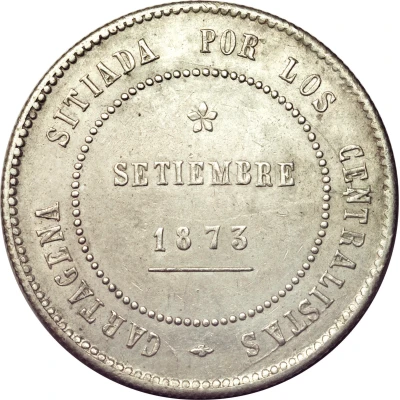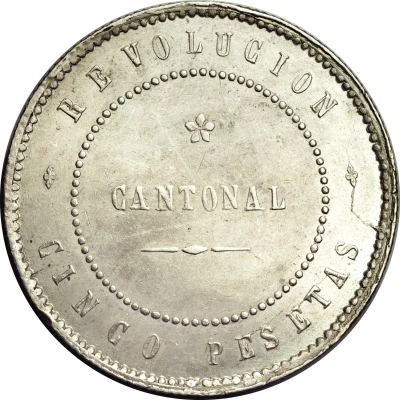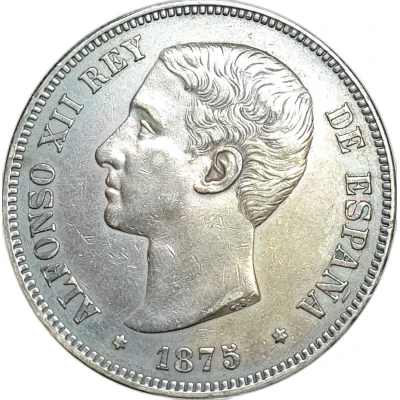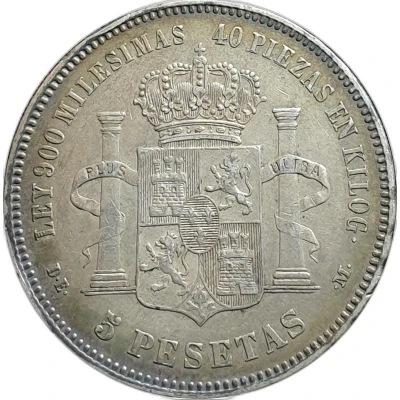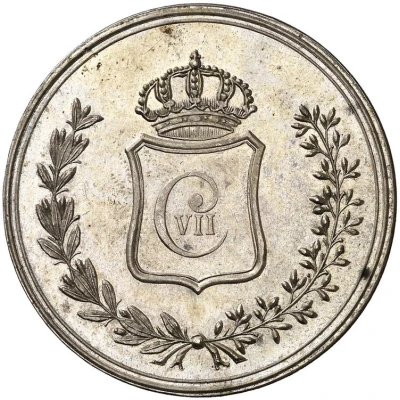
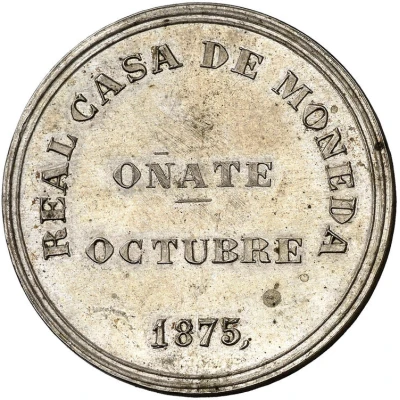

5 Pesetas - Charles VII Pretender
1875 year| Silver (.900) | 25 g | 37 mm |
| Issuer | Spain |
|---|---|
| Ruling authority | Charles VII (1863-1909) |
| Type | Standard circulation coin |
| Year | 1875 |
| Value | 5 Pesetas (5 ESP) |
| Currency | Peseta (1868-2001) |
| Composition | Silver (.900) |
| Weight | 25 g |
| Diameter | 37 mm |
| Thickness | 2 mm |
| Shape | Round |
| Technique | Milled |
| Demonetized | Yes |
| Updated | 2024-10-07 |
| Numista | N#158047 |
|---|---|
| Rarity index | 90% |
Reverse
Lettering and date.
Script: Latin
Lettering:
REAL CASA DE MONEDA
OÑATE
OCTUBRE
1875
Translation:
Royal Mint
Oñate
October 1875
Edge
Plain
Comment
The so-called “Duro de Oñate” is actually a medal commemorating the inauguration by Don Carlos, in October 1875, of the Royal Mint of Oñate, with a clear reference on its reverse.
The medal was issued in silver and copper pieces, and there are variants with three sizes of shield. On those with the largest and smallest shield, a kind of comma appears to the right of the year 1875 engraved on the reverse.
The size and weight of the medal, 37 mm. and 25 gr., similar to those of the silver 5 Pesetas (or Duros) of the time, led to them being circulated as such at the end of the war, despite not carrying the face value of 5 pesetas. Hence its name of "Carlist Duro" with which a specimen appears on display in the National Archaeological Museum of Madrid, already at the end of the 19th century, as indicated in the second volume of the book "Carlist Spain", published in Barcelona in 1886.
Source: “Sociedade Filatélica Numismática Guardesa”
Interesting fact
The coin was minted during a time of political turmoil in Spain, when Charles VII, also known as Charles, Count of Chambord, was claiming the throne as the pretender to the Spanish throne. This coin was minted in support of his claim, but ultimately, he was unsuccessful in his bid for the throne. Despite this, the coin remains a unique and interesting piece of Spanish history.
